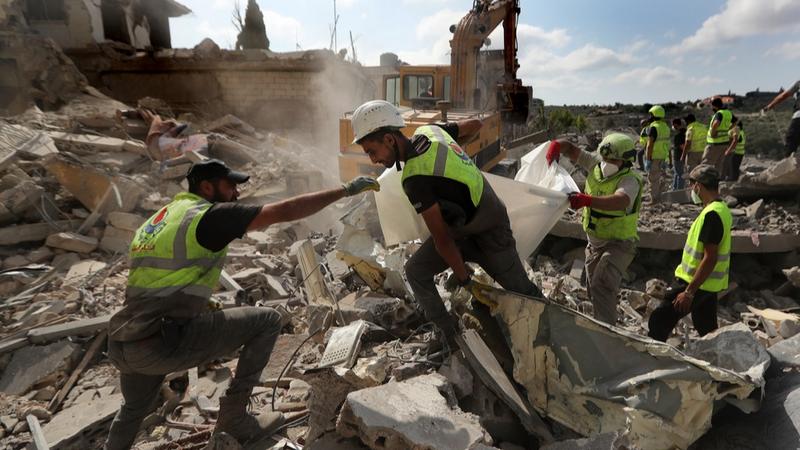Published 15:43 IST, October 17th 2024
War BREAKING: US Strikes Iran-Backed Houthis In Middle-East, Israel In Lebanon
The U.S. military have launched a series of airstrikes in Yemen against the Iranian-backed Houthis.

The U.S. military launched a series of airstrikes in Yemen against the Iranian-backed Houthis, late Wednesday, targeting five underground weapons storage sites. Defense Secretary Lloyd Austin confirmed the operation. The strikes were executed by B-2 Spirit bombers, marking the first deployment of these advanced stealth bombers against the Houthis.
The B-2 Spirit bomber, renowned for its stealth and heavy payload capabilities, enables the U.S. military to deliver significantly more ordnance than conventional fighter jets. Its unique design provides an unparalleled ability to strike high-value, deeply fortified, or well-concealed targets. Secretary of Defense Lloyd Austin stated that the strikes were authorized by President Joe Biden , highlighting, “This was a unique demonstration of the United States' ability to target facilities that our adversaries seek to keep out of reach, no matter how deeply buried or fortified.”
The airstrikes come at a time of heightened tensions in the Middle East, with U.S. allies, particularly Israel, facing threats from Iran and its proxies. The Houthis in Yemen have increasingly targeted commercial shipping and military vessels, jeopardizing vital maritime trade routes. Their attacks have intensified in recent months, including claims of launching ballistic and cruise missiles at U.S. Navy ships.
The Houthis' operations in the Red Sea and Gulf of Aden, utilizing weaponry from underground storage sites, raise concerns about global trade security and potential environmental disasters. An attack in August on a Greek-flagged vessel resulted in an oil spill, prompting significant environmental alarms.
In September, the Houthis escalated their offensive, launching around two dozen missiles and drones at three U.S. Navy destroyers. Although these missiles did not hit their targets, they triggered an increased military response from U.S. forces in the region.
The Iran-backed Houthis have positioned their actions within a broader alignment with groups like Hamas and Hezbollah, actively engaged in conflicts with Israel. Following a failed missile strike on Israel in September, they openly expressed support for these groups. Israeli Prime Minister Benjamin Netanyahu warned that the Houthis would “pay a heavy price” for their actions, leading to Israeli airstrikes on Houthi positions shortly thereafter.
In the weeks following, the Houthis continued missile and drone launches toward Israel, further complicating the regional security situation. Their ongoing attacks on international shipping have provoked substantial military responses from the U.S. and its allies.
Wednesday’s strikes on Houthi facilities are part of a broader U.S. military strategy aimed at diminishing the Houthis' growing arsenal and operational capabilities. U.S. Central Command (CENTCOM) confirmed no immediate civilian casualties from the latest operations. Over the past year, the U.S. has bolstered its military presence in the region, deploying advanced naval assets, carrier strike groups, and air support through fighter jets and attack aircraft.
Updated 17:50 IST, October 17th 2024




